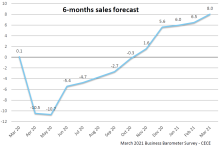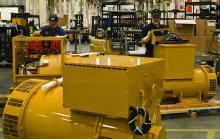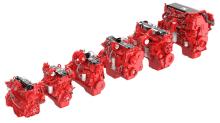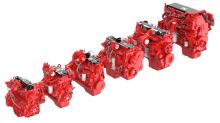
In particular they want compliance deadlines for the manufacture of Stage V off-road engines to be temporarily suspended.
In a joint letter sent today (March 25) to the European Commission CECE, CEMA, EGMF, EUnited Municipal Equipment & Cleaning, Europgen and FEM asked for a moratorium on the application of 2020 and 2021 deadlines listed in Regulation 2016/1628/EU on exhaust emissions from NRMM and 2018/985/EU for agricultural vehicles.
“The situation is critical,” said Riccardo Viaggi, secretary general of European construction machinery manufacturers association CECE. "A temporary moratorium must be granted, with deadlines postponed until the situation can be reassessed. Neutral from an environmental point of view, the measure would prevent further economic damage caused by the COVID-19 pandemic to our manufacturing industries and the jobs that depend on them."
According to the Regulation, 2020 is the transition phase for Stage V engines in power ranges <56kW and ≥130kW and 2021 will be the transition phase for power ranges from 56kW to 130kW. Complying with the Regulation’s deadlines, manufacturing and procurement of transition engines have been completed. Machine manufacturers have now until 30th June 2020 to produce the <56kW and ≥130kW machines fitted with these transition engines, and then until 31st December 2020 to place these machines on the EU market. Identical deadlines apply in 2021 for machines in power ranges from 56kW to 130kW.
The manufacturers say that the COVID-19 outbreak is causing complete interruptions of supply of parts and components. They add that this was the case from China for several weeks and is now starting for other components from Italy and other EU member states. The manufacturers' letter to the EC stated that as the pandemic is progressing, further interruptions – including because of government-imposed lockdowns – are being put in place, planned or expected in Europe and in the US.
Without essential parts like tyres, axles, hydraulics, lighting & electronic equipment, the manufacturers say they are effectively prevented from completing the construction of the machines by the imposed deadlines.
As a result, they say they will not be able to place the machines on the market with the transition engines they had already acquired. They add that, since it will be no longer possible to use them, these engines will have to be scrapped, which will lead to avoidable economic damage and unnecessary waste of raw materials and resources.










